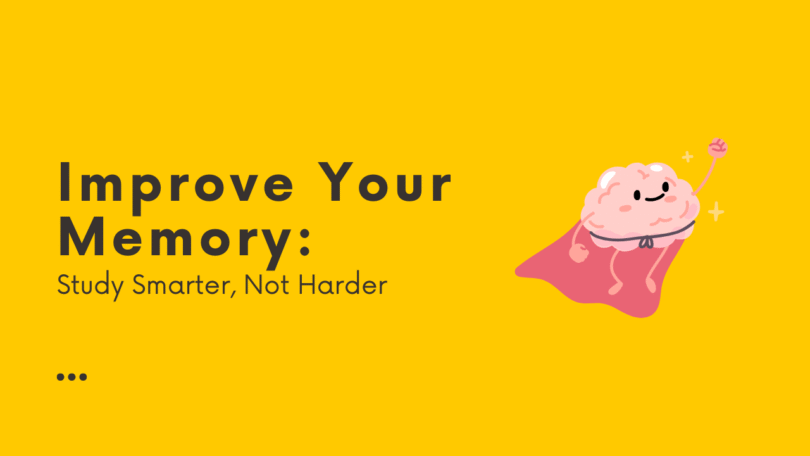For students, a good memory is often seen as a prerequisite for academic success. However, memory isn’t just about natural ability; it’s a skill that can be trained and improved. The key isn’t to cram more information into your brain but to learn how your memory works and use scientifically-backed techniques to make studying more efficient and effective. This article outlines key strategies to help you remember more and study smarter.
1. Understand the Science of Memory: The Forgetting Curve
One of the most important concepts to grasp is the Forgetting Curve, a theory developed by psychologist Hermann Ebbinghaus. It shows that we forget a significant portion of newly learned information very quickly—within days or even hours—if we don’t actively try to retain it. This is why cramming for an exam rarely leads to long-term retention.
The solution is active recall and spaced repetition. Instead of reading a textbook multiple times in one sitting, review the material at increasing intervals. For example, review the information a day after you learn it, then three days later, then a week later, and so on. This process strengthens the neural pathways in your brain, moving information from short-term to long-term memory.
2. Master Active Recall and Retrieval Practice
Passive learning methods like rereading notes or highlighting text are inefficient because they don’t challenge your brain to retrieve information. Active recall, on the other hand, forces your brain to work.
Techniques to practice active recall:
- Flashcards: A classic for a reason. Instead of just looking at the answer on the back, try to remember it from scratch.
- Practice Questions: After a lecture or a chapter, close your book and try to answer a few questions about the content.
- “Teach It” Method: Try to explain a concept out loud to a friend or even to an imaginary person. If you can explain it simply, you truly understand it.
Each time you successfully retrieve a piece of information, you strengthen your memory of it.
3. Use Mnemonic Devices and Create Associations
Our brains are naturally good at remembering stories, images, and rhymes. Mnemonic devices leverage this by creating vivid associations with new information.
- Acronyms: Create a word from the first letters of a list you need to remember. For example, the colors of the rainbow are remembered with the acronym ROY G. BIV (Red, Orange, Yellow, Green, Blue, Indigo, Violet).
- Visualizations: Create a mental image or story that connects a concept to something you already know. For example, to remember that the capital of Massachusetts is Boston, you could imagine a “boss” with a large “mass” of hair on his head.
- Memory Palace: This advanced technique involves associating items you need to remember with specific locations in a familiar place, like your home. To recall the information, you mentally walk through the place, picking up each item as you go.
By linking new information to existing knowledge or a creative image, you make it more memorable and easier to retrieve.
4. The Power of Chunking and The Pomodoro Technique
Our short-term memory can only hold a limited amount of information at a time. The concept of “chunking” helps us overcome this limitation by grouping related pieces of information into larger, more meaningful units. For instance, it’s easier to remember the number 149217761945 as three historical dates (1492, 1776, 1945) than as a single long string of digits.
Additionally, use a structured study method like the Pomodoro Technique. Breaking your study sessions into focused 25-minute intervals followed by short breaks can prevent mental fatigue and improve concentration. This focused work allows you to process information more deeply, which is crucial for moving it into long-term memory.
5. Prioritize Sleep, Nutrition, and Exercise
Studying isn’t just a mental game; it’s a physical one. Your brain’s ability to create and consolidate memories is directly linked to your overall health.
- Sleep: During sleep, your brain consolidates information learned throughout the day. A lack of sleep can significantly impair your ability to form new memories and recall existing ones. Aim for 7-9 hours of quality sleep per night.
- Nutrition: A balanced diet rich in omega-3 fatty acids, antioxidants, and vitamins supports brain health. Foods like salmon, blueberries, nuts, and leafy greens are excellent for cognitive function.
- Exercise: Regular physical activity increases blood flow to the brain, which in turn promotes the growth of new brain cells and improves overall cognitive function. Even a short 20-minute walk can significantly boost your focus and memory.
By treating your body and mind as an integrated system, you’ll be able to learn more efficiently and effectively, allowing you to study smarter, not harder.







